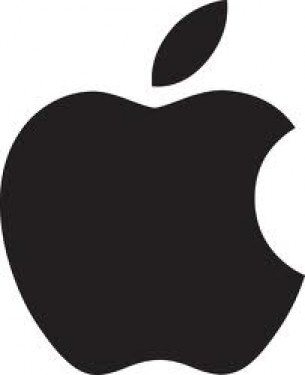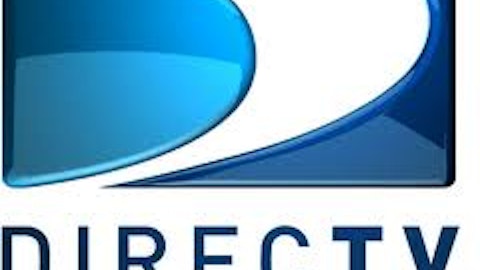These days, Apple Inc. (NASDAQ:AAPL) constantly looms large in tech and finance headlines. Whether it’s Apple Inc. (NASDAQ:AAPL)’s upcoming iRadio, its polarizing release of iOS 7, or rumored smart watch and smart television products, journalists and analysts are obsessed with the company that houses the legacy of the late Steve Jobs.
While a lot attention has been given to its iPhones and iPads, which together comprise more than three-fourths of Apple Inc. (NASDAQ:AAPL)’s revenue, fewer investors have focused on one of Apple’s fastest growing businesses: e-books. Over the past five years, Apple has quietly grown its share of the e-book market from nothing to 100 million users, emerging as a third place competitor to market leaders Amazon.com, Inc. (NASDAQ:AMZN) and Barnes & Noble, Inc. (NYSE:BKS).
How Apple became a contender
Apple Inc. (NASDAQ:AAPL)’s iBookstore currently controls 20% of the e-book market, according to Apple executive Keith Moerer. Although Apple still trails Amazon.com, Inc. (NASDAQ:AMZN)’s 65% market share and Barnes & Noble, Inc. (NYSE:BKS)’s 25% (last reported in May 2011) share, Apple’s share is growing the fastest. The company’s iBookstore reported 100% user growth last year, a continuation of two years of positive growth. Many analysts believe that Apple is growing its market share at the expense Barnes & Noble, which has recently mulled the idea of completely selling its Nook Media business.
Apple Inc. (NASDAQ:AAPL)’s success came from the opposite direction as Amazon.com, Inc. (NASDAQ:AMZN). While Apple used the popularity of its iPad – which currently controls 40% of the global tablet market – to facilitate the growth of its iBookstore, Amazon used the widespread use of its website for physical book purchases to grow sales of e-books for its Kindle e-readers. While both Apple and Amazon.com, Inc. (NASDAQ:AMZN) had respective advantages in hardware and content, respectively, Barnes & Noble, Inc. (NYSE:BKS) had neither. As a result, Barnes & Noble clumsily attempted to capture part of the tablet market with the Nook, which only grew digital revenues by 7% in 2012, compared to Amazon’s 70% year-on-year growth.
With great power comes great scrutiny
However, Apple’s feverish growth in the e-book market set it on an inevitable collision course with Amazon.com, Inc. (NASDAQ:AMZN). Apple is currently being investigated by the U.S. Justice Department over possible price collusion with five leading publishers – Penguin, Simon & Schuster, HarperCollins, Hachette and MacMillan – to fix e-book prices at a higher rate to hamper Amazon’s dominance of the e-books market, which peaked at 90% in 2009. Amazon was forced to bow to this agreement, known as the agency model, and raised e-book prices for books from these publishers in 2010.
In the agency model, publishers set the prices of books. Retailers can’t offer discounts on the book, but get a set commission off book sales. This is a stark contrast to the wholesale model that Amazon previously used, in which publishers sell books to retailers for a fixed price, and the retailer decides the final price. The wholesale model is generally more favorable to consumers, who can buy books at more frequent discounts.
The government alleges that Apple’s motivation to raise e-book prices across the market came from an agreement that gave Apple a 30% commission of e-book sales at the agency rate, in line with Amazon’s commission rate. The Justice Department has also called iTunes head Eddy Cue the “chief ringleader of the conspiracy”, and has revealed internal documents that indicate that the late Steve Jobs was also aware of Cue’s plans to raise e-book prices to hamper Amazon’s growth.
The sound and the fury… signifying nothing?
Despite all this sound and fury, Apple shareholders shouldn’t be too concerned with the outcome of this trial for two reasons.
First, e-books are merely an ancillary source of revenue for Apple, intended to complement its music business. If Apple can grow this business to Amazon-like proportions, then it will be a boon to shareholders, but if it collapses then it certainly won’t be a bane. In digital revenue, Apple still has the sales of its music, video and apps to fall back on, and although it might be forced to return to the wholesale model, it will still control a sizable chunk of the e-book market. Second, a fine wouldn’t be more than a slap on the wrist for a company that has $39.1 billion in cash and equivalents. Lastly, neither Apple nor Amazon will be really shaken up by whatever the government decides.
Instead, we should focus on the biggest loser in all of this – Barnes & Noble, Inc. (NYSE:BKS).
Tossed in the bargain bin
Although Barnes & Noble, Inc. (NYSE:BKS) is currently the second largest e-book retailer in the United States, it has a crumbling brick-and-mortar business, which reported a 7.3% decline in same-store sales last quarter. It also reported a net loss of $6.1 million, a 112% decline from the profit of $52 million it reported in the prior year quarter.
Its Nook division reported a steep 26% year-on-year decline in revenue, although digital content sales rose slightly by 6.8%. That means that although sales of its hardware have been falling through the floor, existing Nook owners are still purchasing e-books and apps. However, operating income at the Nook segment slid 23% to $316 million.
For a while, it seemed as if Microsoft Corporation (NASDAQ:MSFT), which currently owns 17% of the Nook Media business, would swoop in as Barnes & Noble’s savior. Unfortunately, Microsoft Corporation (NASDAQ:MSFT)’s assistance of the Nook has been tepid at best, by offering a Nook app for its Windows 8 and Windows Phone devices. However, it appears that Barnes & Noble has very little faith in these apps, and has recently dropped support for the Mac and PC (except for Windows 8) versions of its Nook standalone e-reader software. Nook users are now directed to use the web based version instead. In contrast, Apple announced that it will bring iBooks to the Mac through a dedicated OS X 10.9 app.
Therefore, it’s easy to see where Barnes & Noble is headed – straight to the bargain bin, then possibly to the recycling bin, unless it finds a way to straighten out both its brick-and-mortar and e-reader businesses.
The Foolish Bottom Line
Although everyone is waiting for a major game-changing hardware release from Apple to tilt the tables against Google Inc (NASDAQ:GOOG), I believe that its goals are far more subtle. Consider how quickly and quietly Apple grew its share of the e-book market, and how dangerous its iRadio has suddenly become for Pandora Media Inc (NYSE:P).
For now, Apple’s goals for the future do not include smart televisions and smart watches. Instead, it’s about creeping up on Amazon by using its iTunes store to become an all-in-one digital storefront for songs, videos and books, and using its primary advantage – iOS devices – to hold the line and eventually advance.
Leo Sun owns shares of Apple. The Motley Fool recommends Amazon.com and Apple. The Motley Fool owns shares of Amazon.com and Apple.
The article The Winners and Losers of the E-Book Wars originally appeared on Fool.com and is written by Leo Sun.
Leo is a member of The Motley Fool Blog Network — entries represent the personal opinion of the blogger and are not formally edited.
Copyright © 1995 – 2013 The Motley Fool, LLC. All rights reserved. The Motley Fool has a disclosure policy.






